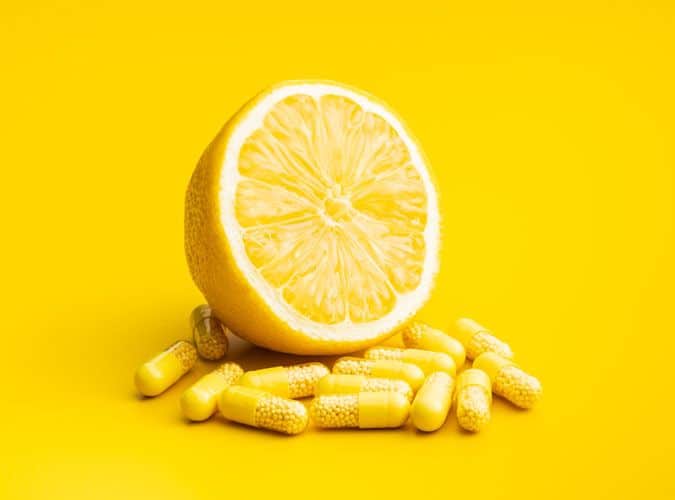Vitamin C
Will it’s immune effect help during a pandemic?

Whilst the levels of Covid-19 circulating in Ireland at present are quite low, it appears that the gradual decline in the number of new cases is not quite disappearing to the levels I would have hoped for. The months of huge effort by a large part of society, who have sacrificed so much, may have well been for nothing. Whilst the Government has got plenty right, their biggest challenge lies ahead.
The easing of lockdown is viewed by many as sense of ‘Victory’, unfortunately though many of the KEY SIMPLE MEASURES to fight this virus appear to have been forgotten. Not by everyone but by a few – enough I would think to re-ignite it again! Hand-washing, social distancing, and the wearing of masks, along with isolating when necessary are the key components that need to be adhered to for some time to come. The “new normal” must be our way of life if we want to beat this virus, save lives and reboot our economy. This virus is not going away and an acknowledge of this fact is that the WHO recorded its most daily figures for new cases of coronavirus worldwide on 12th July 2020.
However, we are not defenceless and taking positive steps to nurture our health is something which we can take control of in these strange and difficult times.
One way apart from the obvious simple measures given to us by Government, to help us integrate in the community with the virus, is to boost our immune and defence systems. Vitamin C was headlined by many at the start of the pandemic as being a possible saviour. We now have had four months to mull over it and look at the outcomes based on the research to date.
What exactly is Vitamin C? – Vitamin C, also known as L-ascorbic acid, is a water-soluble vitamin. Unlike most mammals and other animals, humans do not have the ability to synthesize vitamin C and must obtain it from our diet.
What benefits does Vitamin C have?
- It is a potent antioxidant, therefore helping combat cell damage, inflammation, reducing bad cell development and free radicals in our body brought on by stress.1
- It is involved in the biosynthesis of collagen, necessary for the function and health of our body, bones, blood vessels, ligaments and muscles. Superficially it helps prevent skin from sagging and the avoidance of wrinkles.2
- High levels of plasma circulating vitamin C has shown a reduction in of developing cardiovascular disease (which includes hypertension and atrial fibrillation). It may help in the reduction of cardiovascular disease by as much as 25% 3
- It is thought that it may reduce the risk of developing of some cancers. However, most of the evidence for this is based on uncontrolled interventions, observational studies, and case reports. There is a need for large, long-duration phase II clinical trials that test the efficacy of intravenous vitamin C in cancer progression and overall survival.4
- Vitamin C helps in the prevention of coughs and colds and shortens their duration if they occur. Some recent studies suggest that it may have helped non-severe Covid-19 cases. 5,6,7,8.
Vitamin C -What format or form should I take? – It’s too confusing!
You are right, there are lists the length of your arm of the different forms and formulations of Vitamin C available on the market. Whilst all have their benefits, I will attempt to give you an overview of each type.
- Ascorbic acid is the form of vitamin C found naturally in food. It has good bio-availability but some people find it too acidic on their gut and can’t tolerate higher doses.
- Bioflavonoids are beneficial plant compounds often added to vitamin C supplements. They deliver extra immune benefits and may help to increase bio-availability (making it easier for the body to absorb).
- Mineral ascorbates such as calcium and magnesium ascorbate are often called ‘buffered’ vitamin C. Many people find these to be gentler forms of vitamin C that are better tolerated by the gut. It is important however to consider the accompanying dose of mineral (calcium, magnesium etc.) when taking higher levels.
- Time-release vitamin C is often the preferred choice since vitamin C has better bioavailability when taken in smaller doses throughout the day. A time-release formula aims to solve this problem without taking multiple tablets, by releasing the vitamin C slowly throughout the day.
- Ester-C® is a patented form of buffered vitamin C (mainly calcium ascorbate) that has been shown to be well absorbed and tolerated in the gut like other mineral ascorbates.
- Liposomal Vitamin C – (Altrient) Liposomal (or pro-liposomal) vitamin C is a ground-breaking option for high-dose vitamin C. Not only does liposomal vitamin C have a substantially higher absorption rate than conventional vitamin C supplements. Whilst more expensive that other forms, this supplement is popular with those seeking the ultimate Vitamin C. [Liposomes are phospholipid containing microscopic spheres that carry vitamin C at their core. Their absorption does not depend on vitamin C transporters like SVCT-1 but rather on the direct fusion of the liposome with the small intestinal cells resulting in the direct intracellular release of the vitamin C which eventually ends up into the blood circulation].
Whilst Vitamin C may not be considered a ‘trending’ vitamin nowadays, it still is one of the mainstays in terms of immune boosting measures available to us. Having been researched and discussed since world war times, it has lasted the test of time. Over the decades newer and better methods increasing Vitamin C’s absorption have evolved which has enabled us to study the effects this vitamin has on our body and ultimately lend to better health results.
